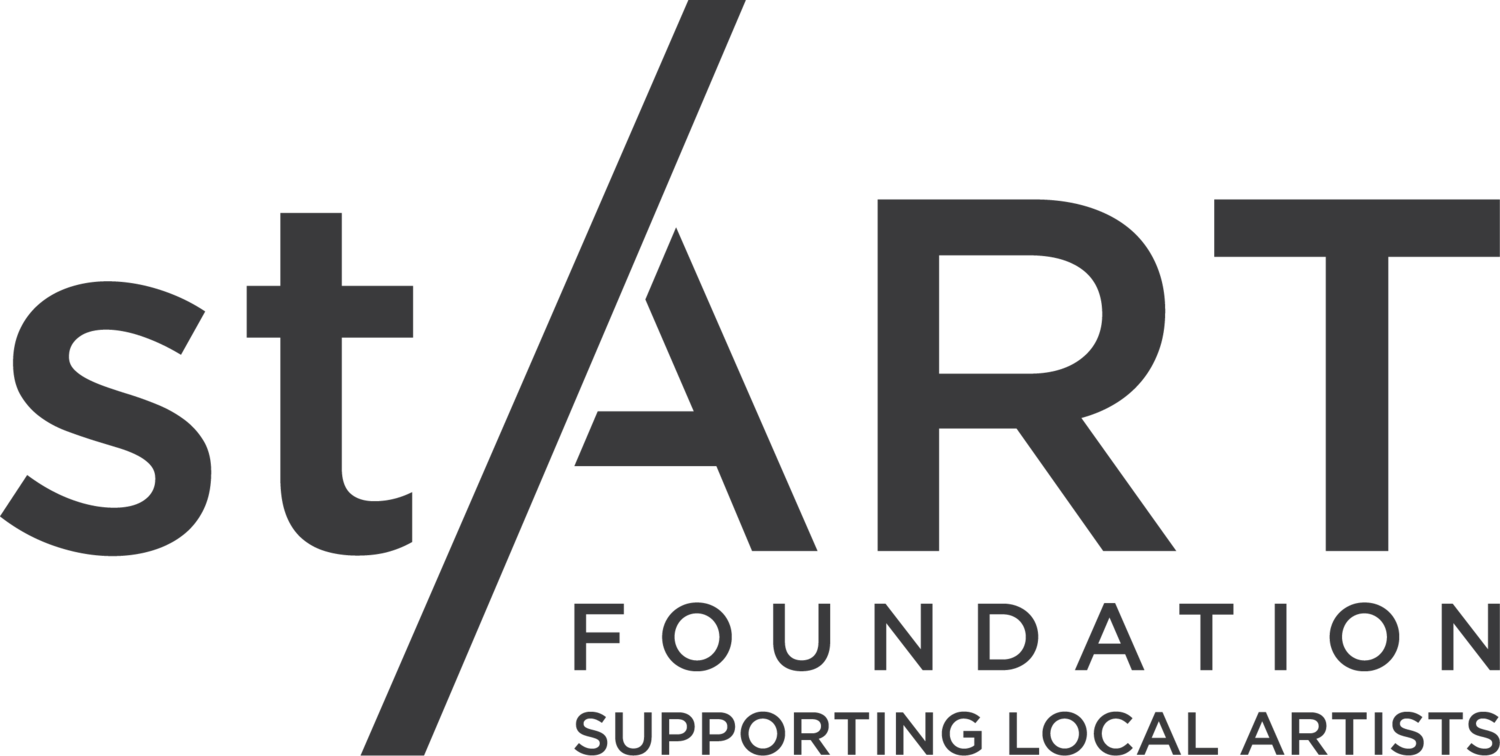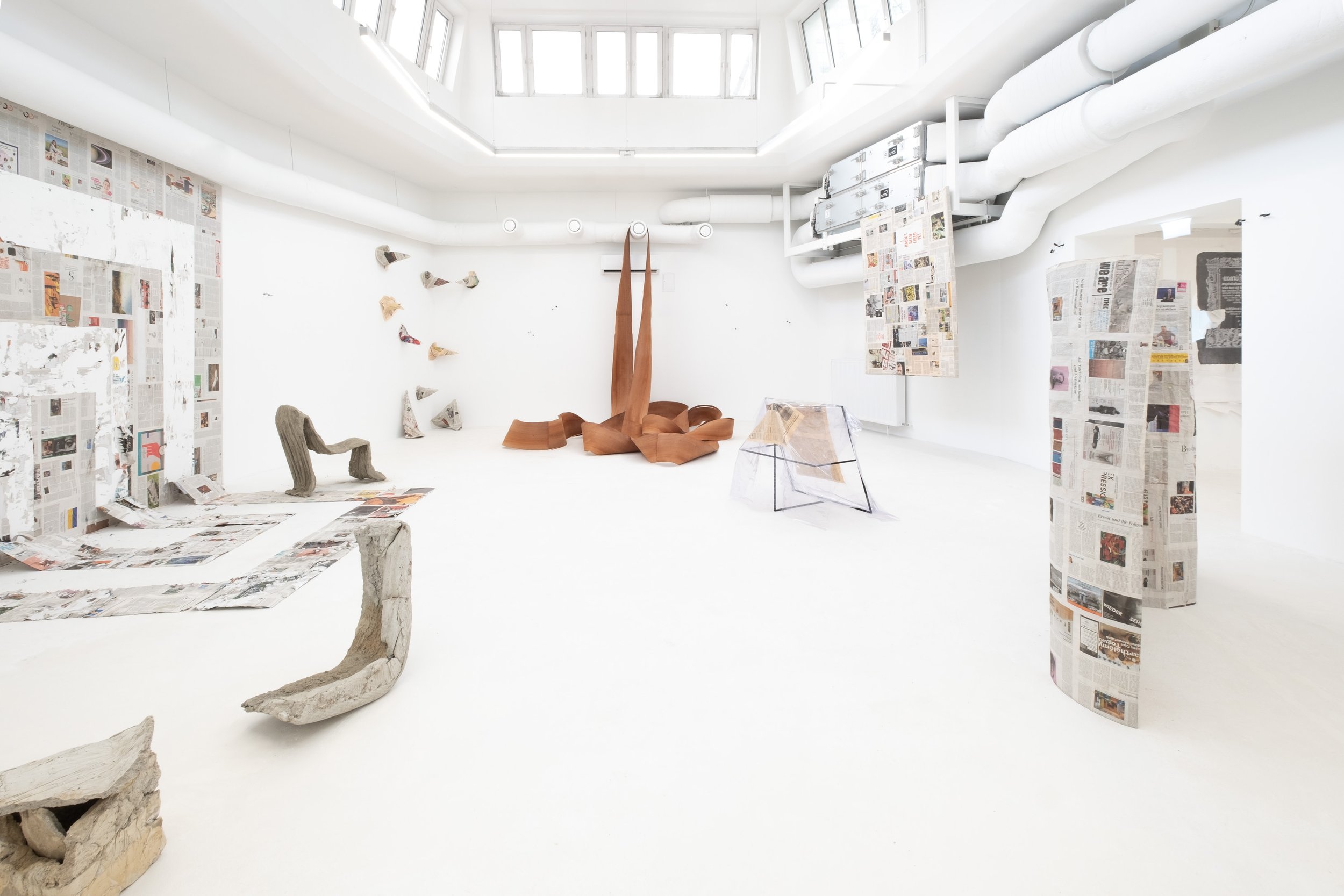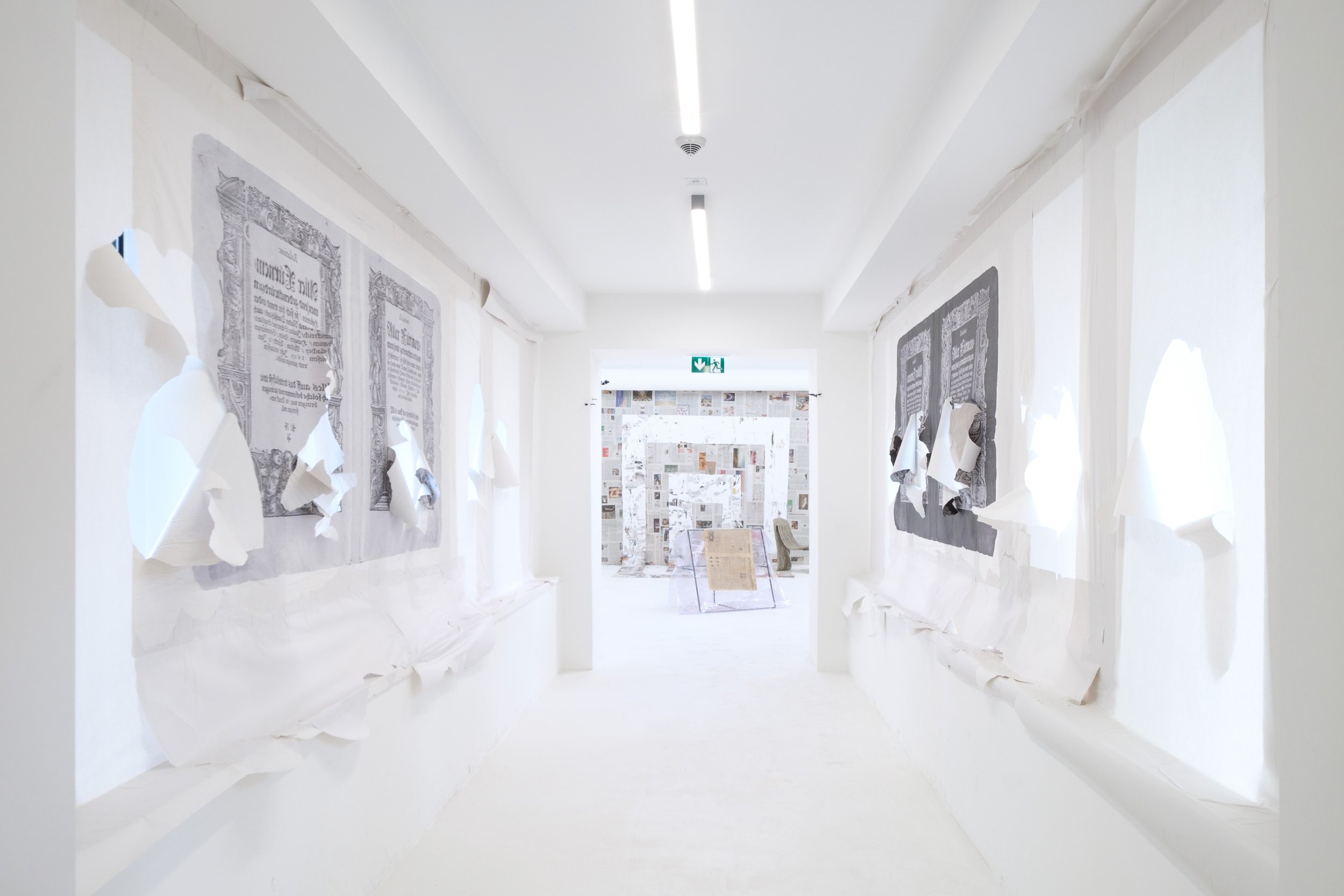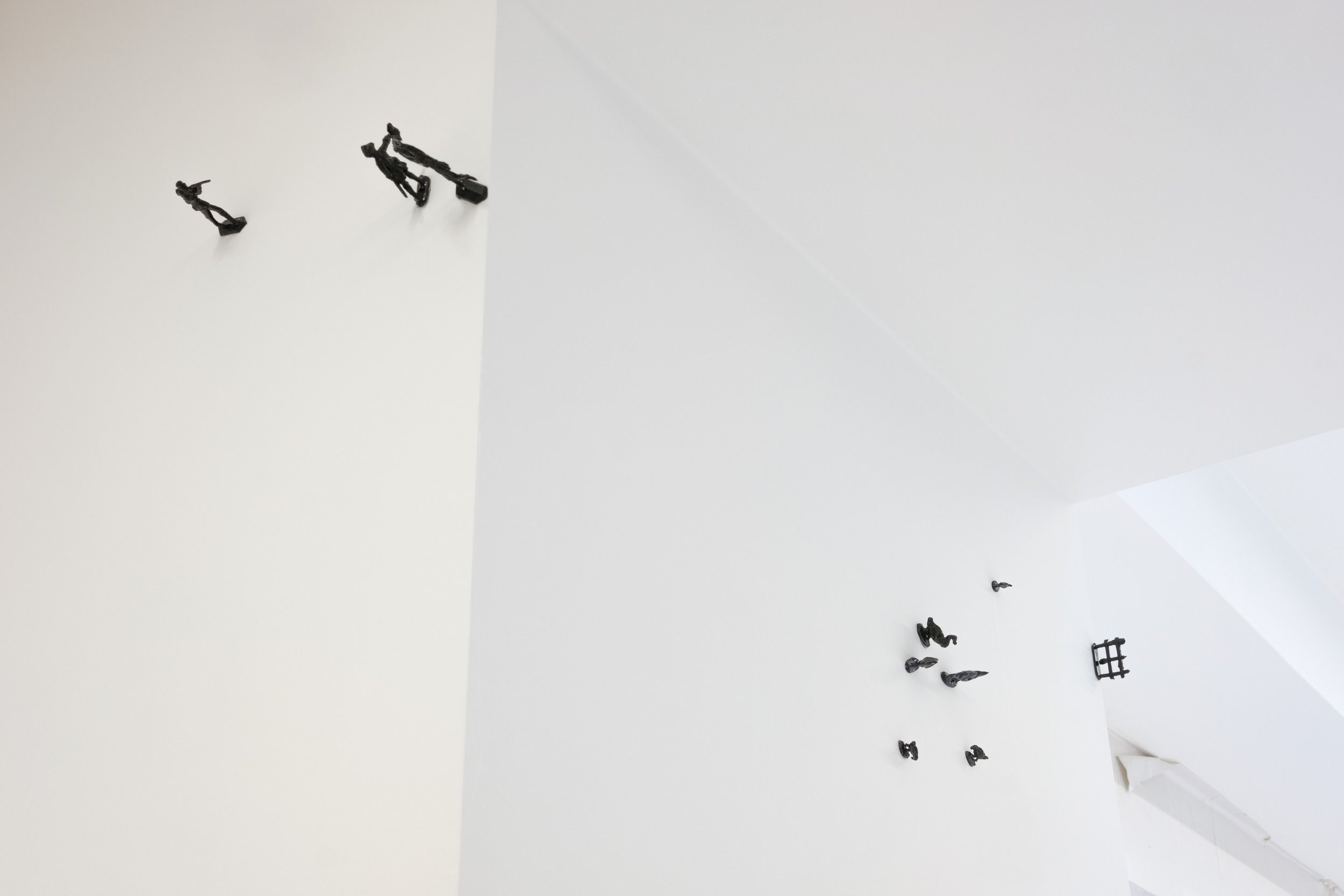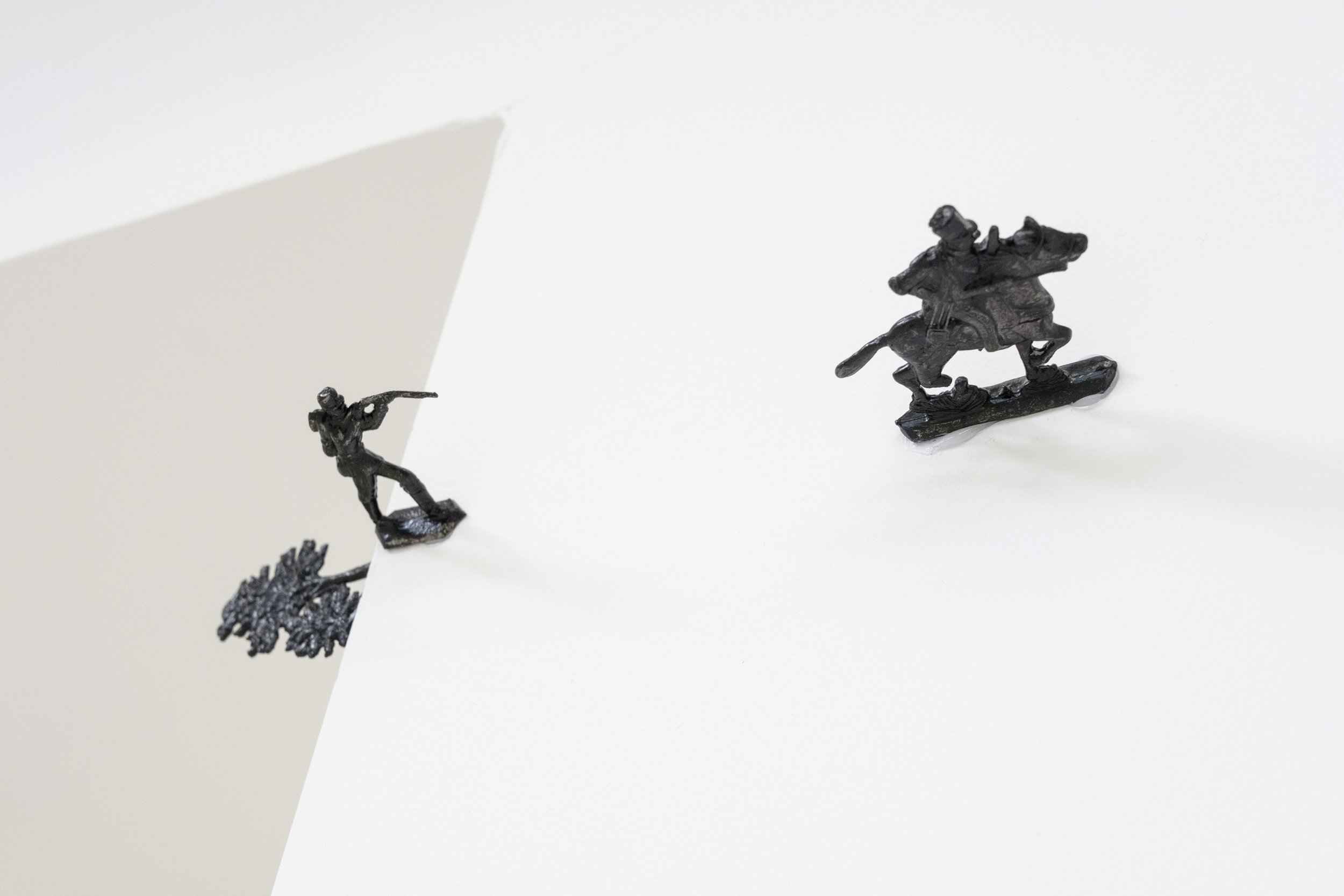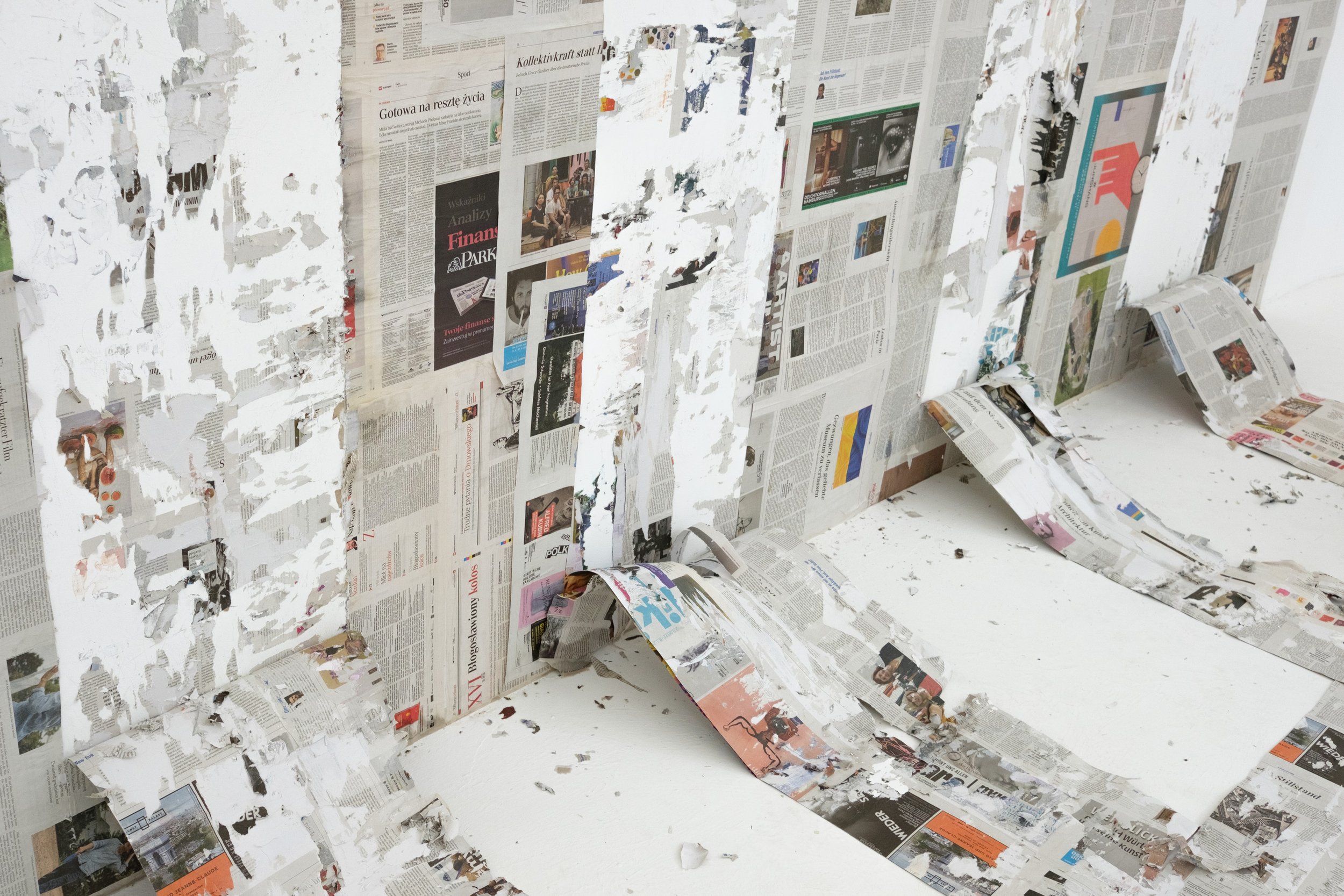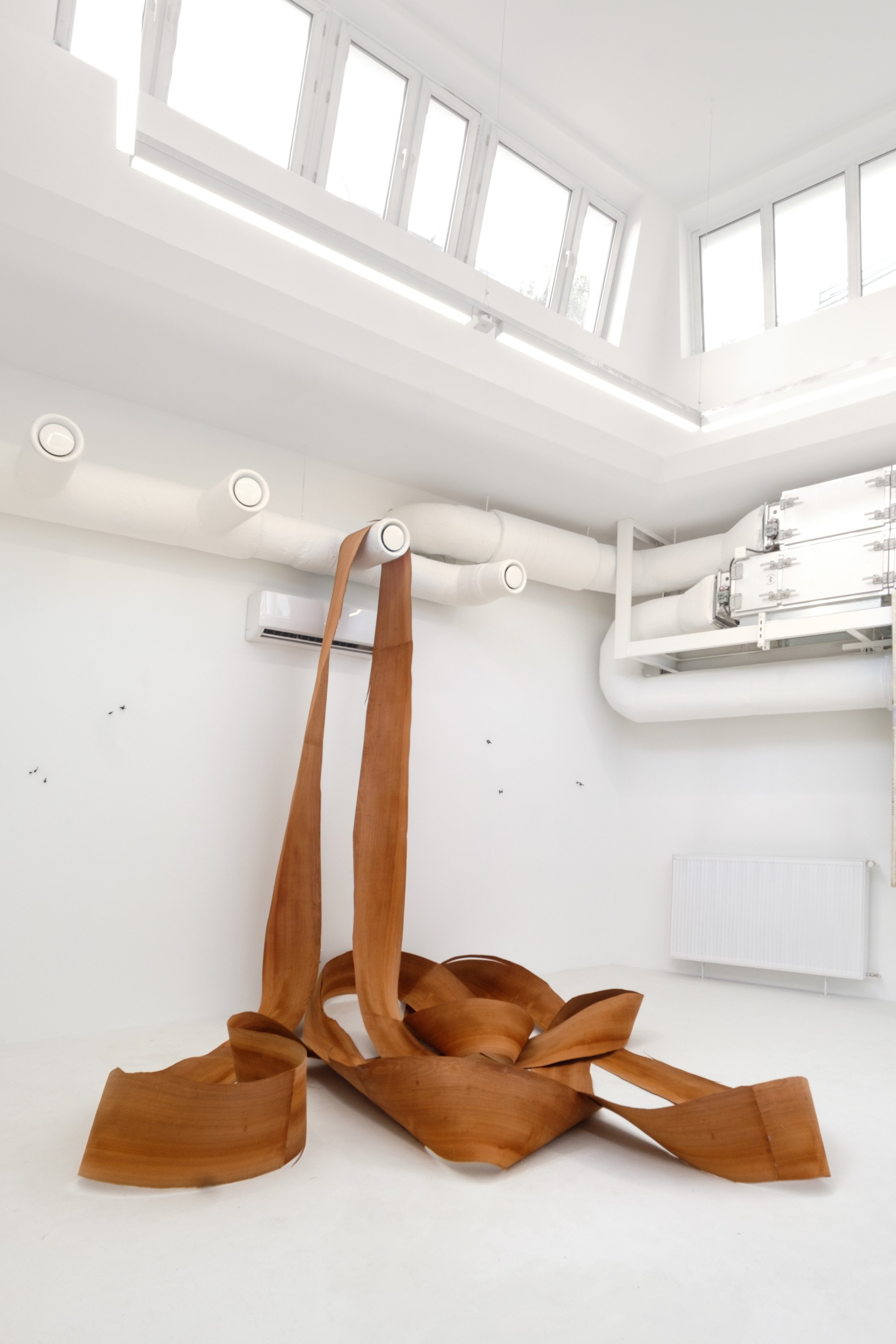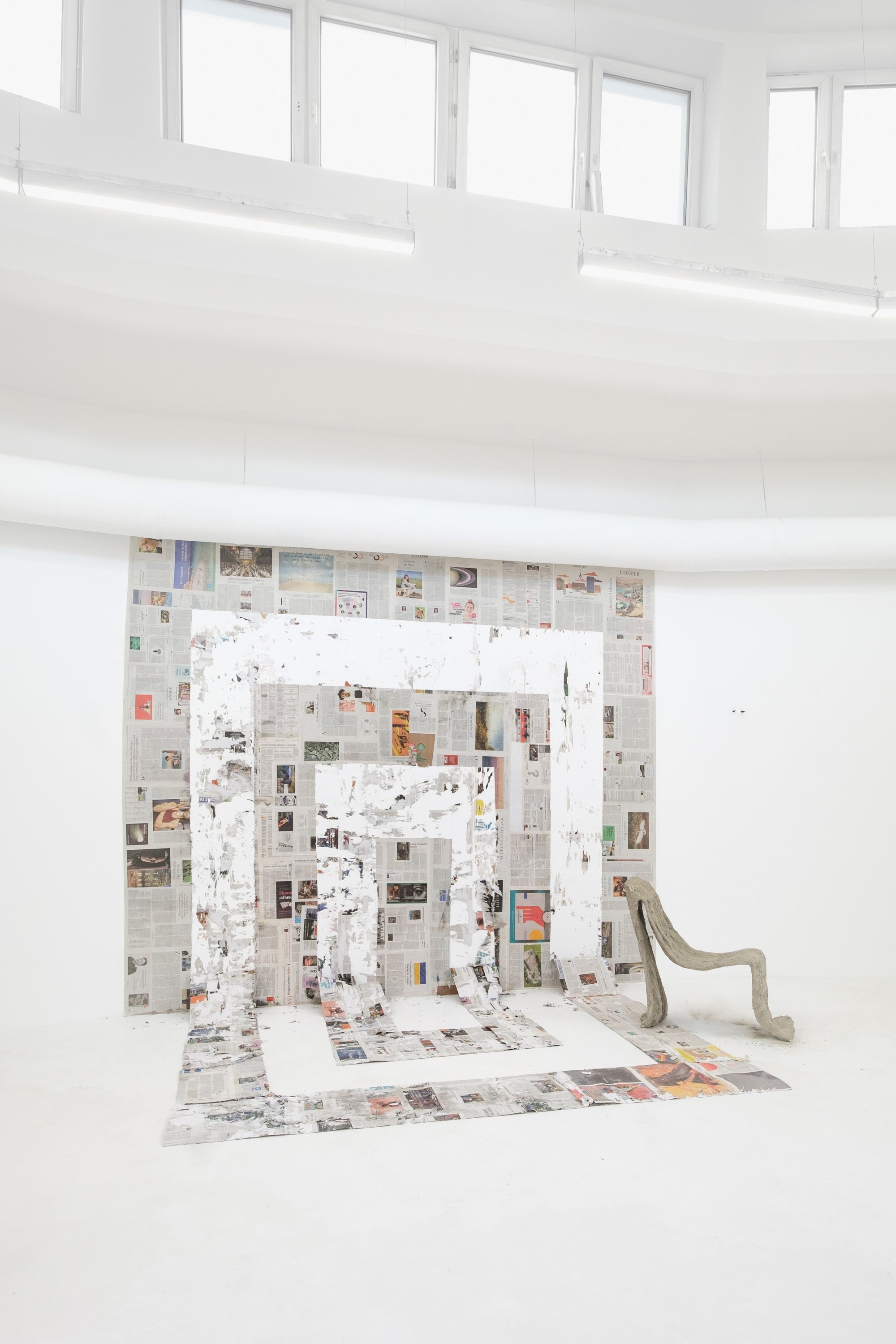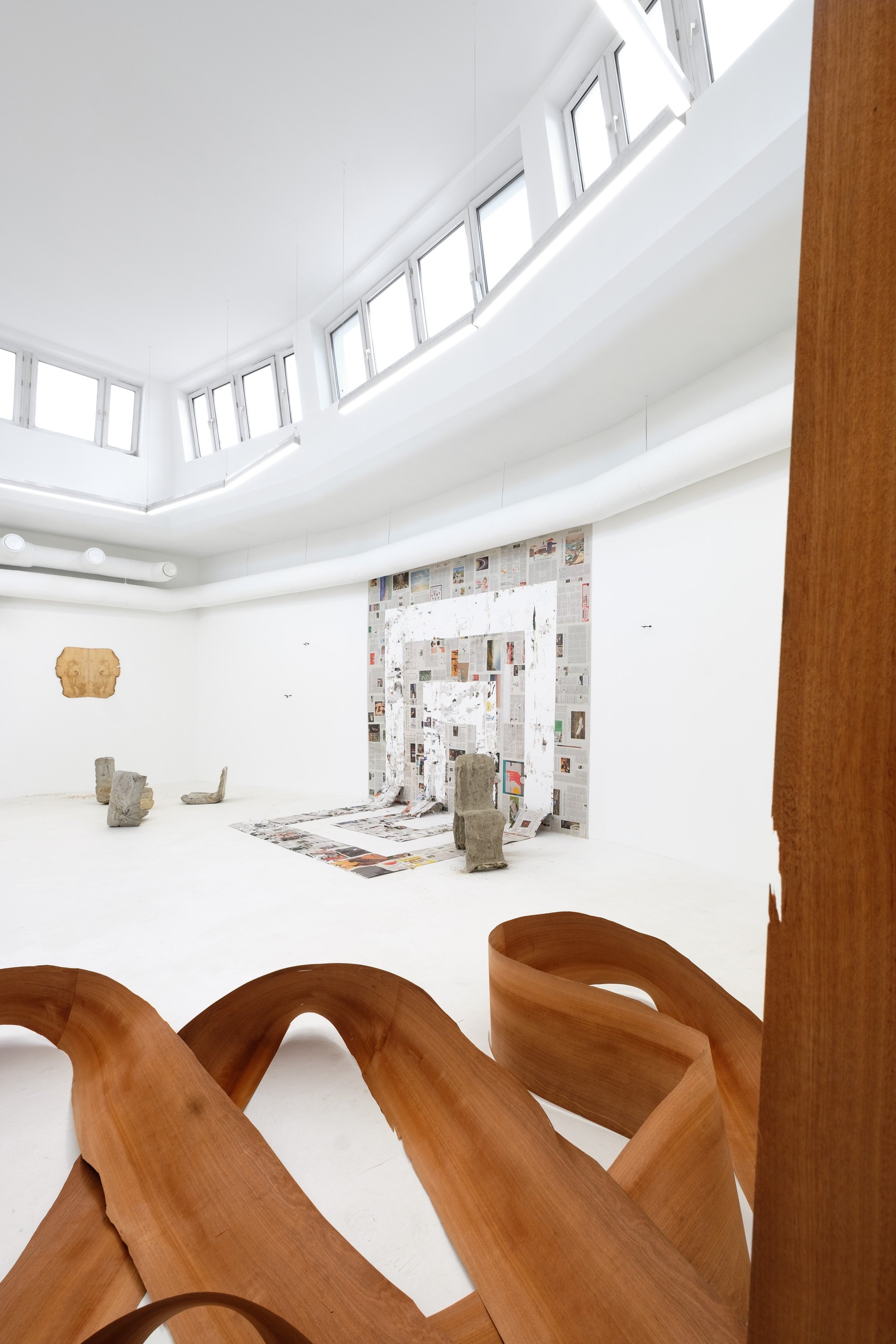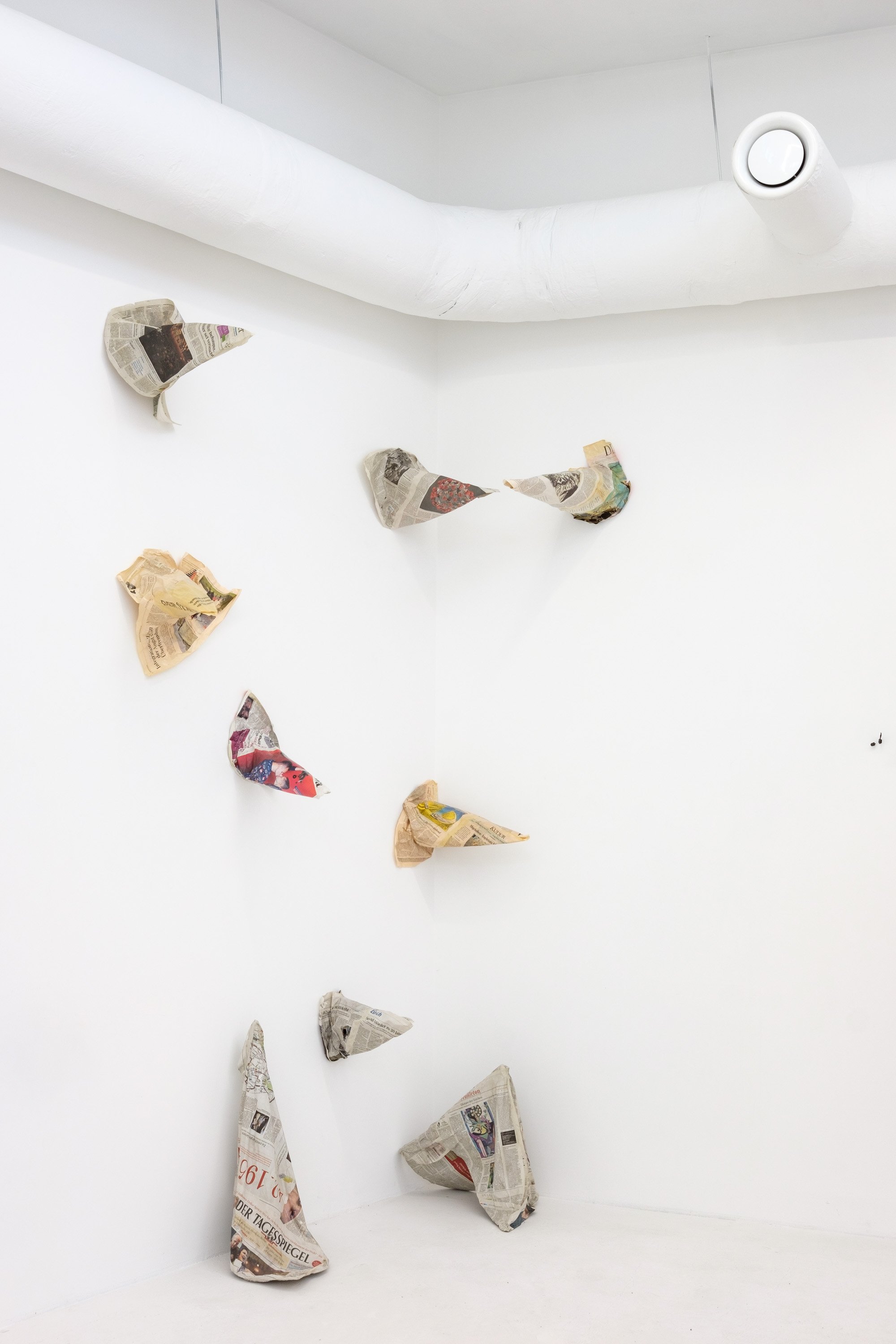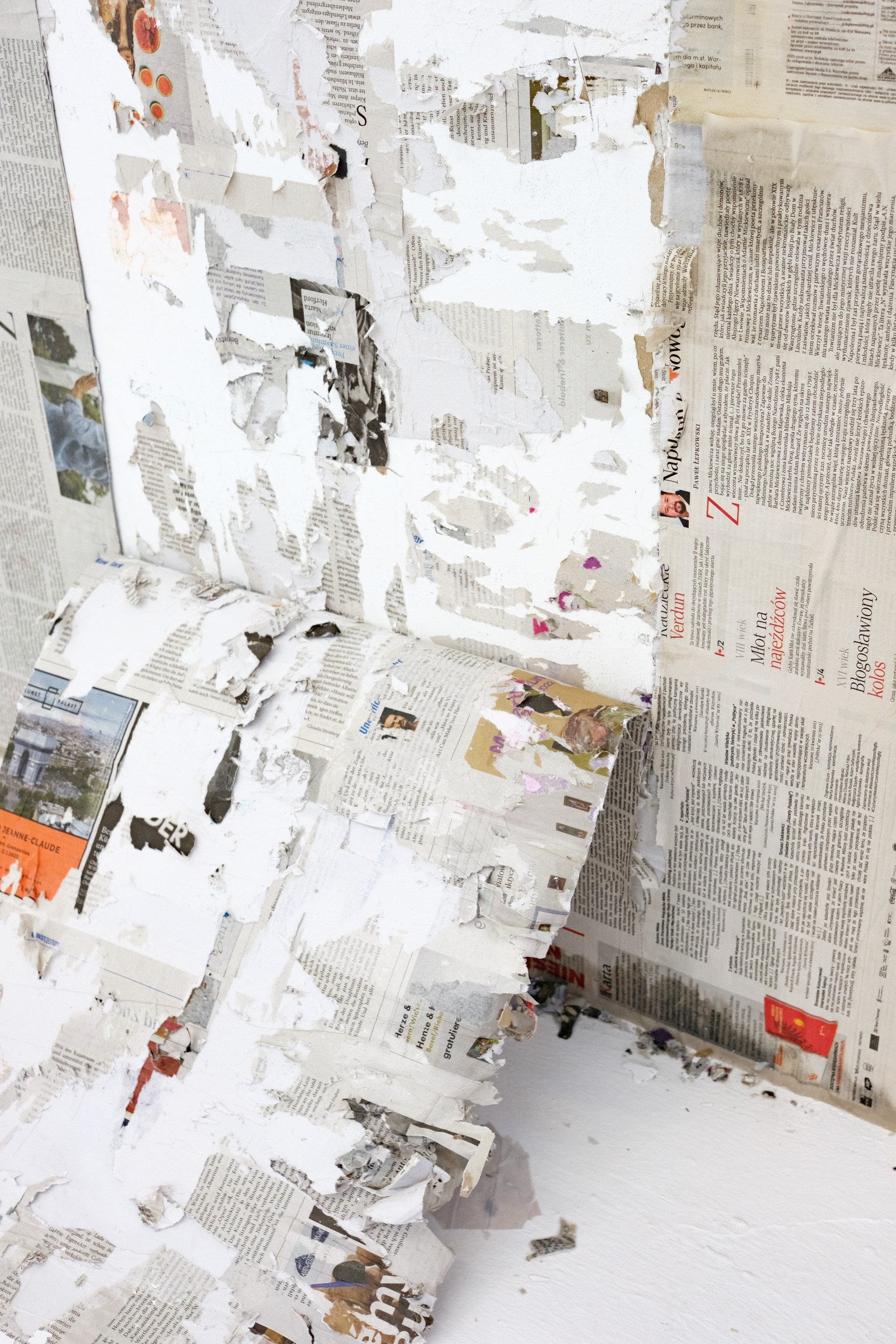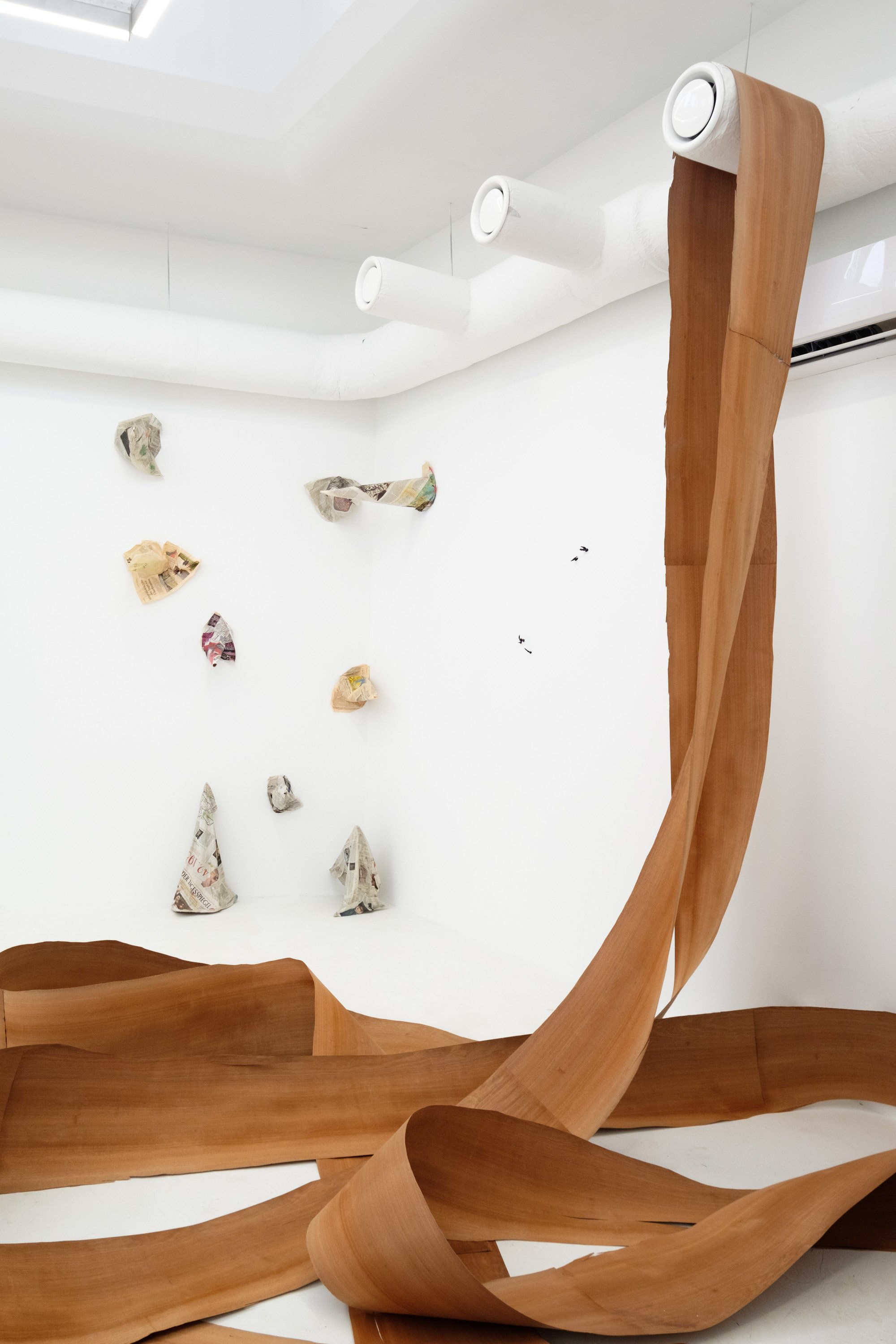The German- and Swiss-based Polish artist Renata Rara Kaminska has her artistic focus on drawing, sculpturing, weaving and installations. As a politically engaged artist she is part of several movements and initiatives, such as for the progressive Polish party “Lewica Razem“. By studying printed local press in Polish, German, French and Czech, Kaminska focuses on collective memory and its manifestation in public spaces, which reflects the main axis of her work. The artist asks:
„Whose property is the public space and which of its part belongs actually to me?”
This space includes city squares and streets, but most importantly for Kaminska, the space of information flow and mass communication. The oldest form of mass media is newspaper. The earliest newspapers date to 17th century Europe when printed periodicals began rapidly to replace the practice of hand-writing newssheets. In the 20th century, newspapers as an immanent part of ordinary everyday scenography were often presented in the still life works of contemporary artists - becoming visible and meaningful in assemblage and ready-made styles.
When in the year 1962, in London, a circle of artists associated with Fluxus, have organised the renowned „Festival of Misfits”, Gustav Metzger (1926–2017) proposed the exhibit of „Daily Express” current publication. The act of transformation of the ordinary newspaper status, from the simple mean of expression into an art installation was to expose the hidden significance of the published contents i.e. the horror of cold war and the aggressive capitalism in post war England. The concept, discarded then as „too political”, was realized by Metzger in Tate Modern a half century later. Meanwhile, on the other side of the Iron Curtain, progressive creators, who were subjected to the real socialism experiment, dreamed of a life in a free-market system and environment, trying hardly to cope with the communist party controlling art institutions. It’s worth to mention here the part of an art performance „ The Panoramic Sea Happening” realized in the year 1967 on Baltic seaside by highly acclaimed artist – Tadeusz Kantor (1915–1990), entitled „Agrarian Culture on the Sand“ by planting rolled newspapers in straight rows in the beach sand. Regardless of the differences in political aims, both “The Panoramic Sea Happening” by Tadeusza Kantor as works of Gustav Metzger entered for good the canon of international art.
The art exhibition of Renata Rara Kaminska, unveiled in Warsaw in the Autumn of 2022 fits into the tradition of critical and socially engaged art. Kaminska consciously reiterates different approaches of artists from passed decades by resorting to material swollen by various meanings, namely: daily press. Draws attention to the constant need of analytical and critical observation of the reality represented and simultaneously created by media. Calls to part of contemporary Polish society which, at the same time, seems to accept the heritage of Western Europe’s ruthless capitalism as well as the inherent leading’s party powerful control over mass media and art institutions, in the style of late communist dictatorships.
Kaminska’s art installations created with newspapers are accompanied by mysterious wooden objects. Its presence reminds of cellulose’s organic origins contained in newspapers, indicates the production process and in wider perspective, points to relation between human civilization and our planets ecosystem. Thin sheets of veneer made from tropical trees, were found in carpentry workshop as an example of so called ”colonial goods”. The artifacts made of these materials resemble internal organs – lungs, heart, bloodstream, crucial for human existence as they are necessary for all other Chordata family members.
Text by Agnieszka Tarasiuk
Translation by Agnieszka Wojtowicz
Fotos by Bartosz Gorka
Visual by Brigita Kasperaitė
Although the exhibition takes place during the Warsaw Gallery Weekend, it has no commercial purpose and is open to the public free of charge.
Opening: 29.09.2022 at 5 p.m.
Duration: 30.09. - 11.11.2022
open every Saturday from 4 - 6 p.m. and by appointment via info@start-foundation.eu
Venue:
stART Warsaw c/o a&o hostel Warszawa Wola (same entrance)
ul. Marcina Kasprzaka 18/20
01-211 Warszawa
Poland
